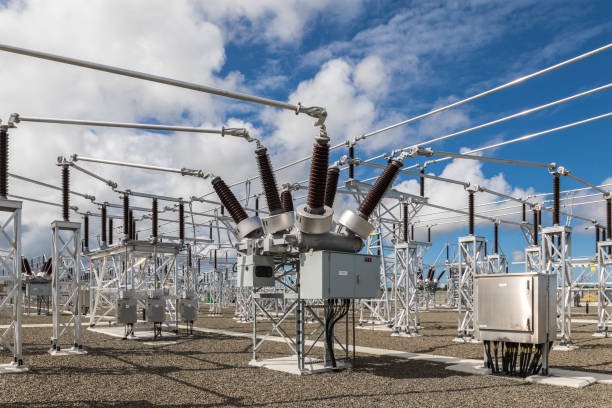Independent Power Producers (IPPs) have been a cornerstone of Pakistan’s energy sector since the 1990s. While they have significantly contributed to addressing the country’s energy shortages, their economic impact has become a thorny debate in Pakistan in recent months.
This article, nonetheless, explores how IPPs are influencing Pakistan’s economic landscape, highlighting both their benefits and the challenges they pose to financial survival of consumers and Pakistan alike.
The introduction of IPPs in Pakistan was a strategic move to combat severe energy shortages. The government offered very lucrative incentives to private investors, ensuring guaranteed returns and capacity payments. This initiative aimed to boost energy production and reduce load shedding, which had been a major issue for the country for years.
One of the primary concerns with IPPs is the high cost of electricity they generate and capacity payments involving trillions of rupees a year. For instance, in 2023-24, the government will have to pay around Rs 2000 billion to the IPPs as capacity payments. In the US dollars, this amount is equal to $7.20 billion, keeping in view the existing dollar-rupee exchange rate of 278 rupees in the inter-bank in Pakistan. Meanwhile, in 2024-25, the capacity payments will surge to above 2300 billion which will be agonizing for the consumers.
Compared to state-owned power plants, IPPs charge higher tariffs, which has several economic repercussions:
Higher electricity prices raise operational costs for businesses, making them less competitive in the global market.
The elevated cost of electricity contributes to inflation, as businesses pass on these costs to consumers.
For households, higher electricity bills mean reduced disposable income, affecting their overall standard of living.
Capacity payments, which are made to IPPs regardless of whether their electricity is used, add another layer of financial strain. These payments have been criticized for contributing to the circular debt problem in Pakistan’s energy sector, placing a significant burden on the government and taxpayers.
Impact on the Manufacturing Sector
The manufacturing sector, a vital part of Pakistan’s economy, has been particularly hard-hit by high electricity costs. Increased energy expenses have led to reduced production, job losses, and decreased competitiveness. This has stunted economic growth and deterred foreign investment.
The Senate Standing Committee’s viewpoint about 40 IPPs and Millions of Pakistanis
During a meeting of the Senate Standing Committee on Cabinet Division, chaired by Rana Mahmoodul Hasan, NEPRA Chairman Waseem Mukhtar discussed potential solutions to the ongoing issue of high electricity bills. He emphasized that maintaining macroeconomic stability is essential to preventing further increases in electricity rates. “If the macroeconomy remains stable, electricity rates will not rise,” Mukhtar stated.
He also pointed out that without investor confidence and economic stability, controlling the rising cost of electricity would be challenging.
Committee members expressed their frustration over the escalating electricity prices, noting that the public is feeling the strain. “Due to the increase in electricity prices, people are holding us by the neck,” they remarked, adding that “Independent Power Producers (IPPs) linked to 40 families are significantly burdening the public. These IPPs are costing the public dearly.” The members identified the IPPs as a major source of public anxiety, criticizing the current contractual agreements and calling for a forensic audit of these contracts.
The committee also questioned the decision to allow a coal plant in Sahiwal, citing the logistical challenges of transporting coal by train from the port. They stressed the need for a comprehensive solution to escape the “trap” of IPPs, urging a thorough review and potential renegotiation of IPP tariffs.
The members called for a forensic audit of IPP contracts to ensure transparency and fairness, alongside the development of a strategic plan to mitigate the high costs associated with IPPs and explore alternative energy sources.
Policy Recommendations
To balance the scales and enhance the positive impact of IPPs, several policy recommendations can be considered:
Renegotiating Contracts: The government should consider renegotiating contracts with IPPs to align payments more closely with actual electricity production and demand.
Investing in Renewable Energy: Focusing on renewable energy sources can provide a more sustainable and cost-effective solution to Pakistan’s energy needs.
Improving Efficiency: Enhancing the efficiency of existing power plants and reducing transmission and distribution losses can help lower electricity costs.
Conclusion
The role of IPPs in Pakistan’s economic growth is complex. While they have helped mitigating the electricity crisis and enhancing the energy supply and attract investment, the high cost of electricity and capacity payments, nevertheless, pose significant challenges to all the stakeholders. Addressing these challenging issues through policy reforms and investment in sustainable energy solutions is crucial for fostering economic growth and improving the standard of living for all Pakistanis.
By understanding and addressing the multifaceted impact of IPPs, Pakistan can pave the way for a more balanced and sustainable economic future.










